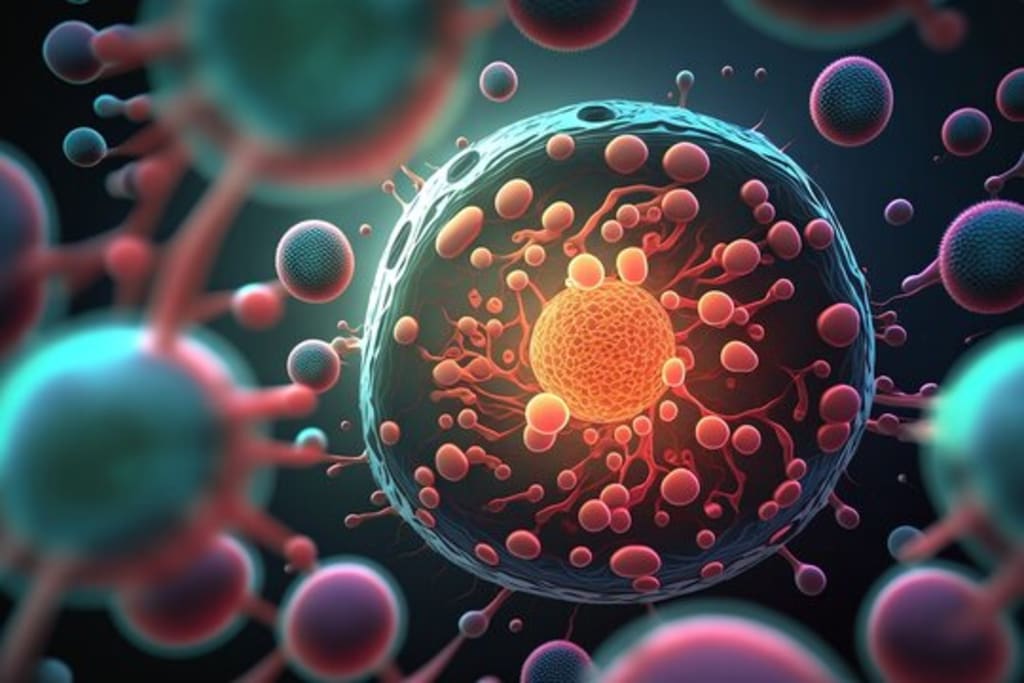The Rejuvenation Revolution: Can We Reverse Aging with Cellular Reprogramming?
Induced Regeneration: Harnessing the Power of Cellular Reprogramming to Reverse Aging

In the mission to expand the human life expectancy, researchers have taken striking steps in figuring out the intricate systems of aging. In any case, one area of examination that has caught the consideration of researchers and people in general is the tantalizing possibility of reversing the aging process through cellular reprogramming.
The start of Cellular Reprogramming
The idea of cellular reprogramming rose up out of the groundbreaking work of Shinya Yamanaka, who in 2006 found a method for changing adult specialized cells, such as skin cells, into pluripotent stem cells. These induced pluripotent Stem Cells (iPSCs) have the momentous capacity to form into any cell type in the body, similar to embryonic stem cells.
Yamanaka's revelation opened up another area of conceivable outcomes in regenerative medication, yet it likewise brought up fascinating issues about the possibility to switch the maturing system at the cellular level.
Turning Back the Clock on Aging Cells
As cells age, they collect different types of damage, including mutations, epigenetic modifications, and the gathering of poisonous side-effects. This cellular aging process is a critical contributor of the general decrease in physiological capability and the expanded risk of age related illnesses.
Specialists have found that by presenting explicit mixes of reconstructing factors, like those utilized by Yamanaka, they can actually "reset" the cell maturing clock. This interaction, known as cell reinventing, can revive matured cells, reestablishing their young state and usefulness.
Promising Results from Animal Studies
Early tests in mice have yielded promising outcomes, showing the capability of cellular reprogramming to reverse maturing at the organismal level. In one review, scientists utilized a strategy called cyclic cellular reprogramming, which involves exposing cells to reprogramming factors intermittently. They found that this approach could broaden the life expectancy of mice by turning around age-related changes in different tissues, including the mind, muscles, and kidneys.
One more study in on a particular part of aging called cell senescence, where cells enter a condition of long-lasting growth arrestrelease inflammatory molecules that can contribute to age-related diseases. Researchers effectively reinvented senescent cells in living mice, actually reviving them and reducing age-related side effects.
Challenges and Hurdles
While the outcomes from these creature studies are promising, a few difficulties stay before cellular reporgramming can be translated into safe and powerful treatments for people.
One central issue is the risk of inducing pluripotency, which might actually prompt the arrangement of growths or other potentially negative side-effects. Researchers are investigating elective methodologies, like fractional reprogramming or focusing on unambiguous cell pathways, to accomplish restoration without instigating pluripotency.
Furthermore, the proficiency and conveyance strategies for reprogramming factors need to be streamlined to guarantee protected and viable application in people.
The Future of Rejuvenation Biotechnology
In spite of the difficulties, the field of cell reprogramming for restoration purposes is quickly progressing, powered by the energy of its capability to alter the manner in which we approach maturing and age-related sicknesses.
As how we might interpret the atomic components underlying maturing extends, and as new innovations arise, the possibilities of creating protected and successful rejuvenation treatments keep on moving along.
The rejuvenation revolution, when an idea restricted to sci-fi, is currently an enticing reality not too far off, promising to rethink the limits of human life span and usher in another time of better, longer lives.





Comments
prudhvi gunda is not accepting comments at the moment
Want to show your support? Send them a one-off tip.